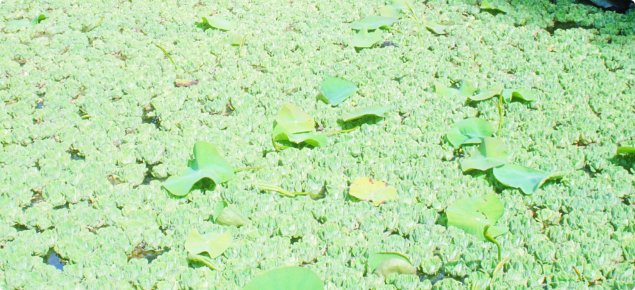Report the presence of this pest before undertaking control
Information about this pest can be found on the water lettuce: declared pest page.
Chemical requirements
When using any agricultural chemicals please ensure that you always follow instructions on the label and any permit. Users of agricultural chemical products must always strictly comply with the directions on the label and the conditions of any permit. To view permits or product labels go to the Australian Pesticides and Veterinary Medicines Authority website.
Control options
Chemical control options can be found below. For other methods of control please refer to the aquatic weed control page.
Chemical control options
| Recommended herbicides | Any time when green leaf surface exposed:Diquat Actively growing plants:Roundup® Biactive |
|---|
| Herbicide: Diquat (Group L) (various trade names: see APVMA site) | |
|---|---|
| Active ingredient | 200g/L diquat |
| Rates of dilution for spot spraying | 1:100 |
| Amount of product/10L water | 100mL |
| Rate of product/ha | 10L |
| Wetting agent dilution | 1:400 |
| Time of application | Any time when green leaf surface exposed |
| Remarks | Not very effective on large areas because regrowth occurs. Higher rates of 50L/ha to a water depth of 1m may work but expensive. |
| More information and other control methods | Thorough wetting is essential. Repeat after four weeks to kill missed plants and seedlings. Add surfactant if low volume spraying, that is, <100L/ha. |
| Herbicide: Roundup® Biactive, Razor® (Group M) | |
|---|---|
| Active ingredient | 360g/L glyphosate |
| Rates of dilution for spot spraying | 1:100 |
| Amount of product/10L water | 100mL |
| Rate of product/ha | 10L |
| Time of application | Actively growing and beyond early bloom stage of growth |
| More information and other control methods | Remove individual plants and small clumps |


